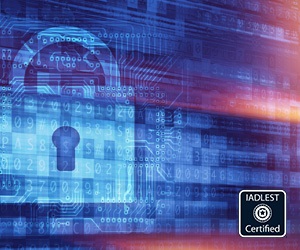September 8-15, 2025
Orlando, FL
learn more
Target Audience: Chiefs, Investigators, Officers, Prosecutors
Event Type: Conference
Target Audience: Chiefs, Investigators, Officers, Prosecutors
Event Type: Conference
June 10-12, 2025
Washington, DC
The National Law Enforcement Training on Child Exploitation is a national training event designed to expand the efforts and knowledge base of law enforcement investigators and prosecutors by providing specialized training focused on investigating and prosecuting technology-facilitated crimes against children.
Target Audience: Chiefs, Investigators, Officers, Prosecutors
Event Type: Conference
May 6-8, 2025
Appleton, WI
The Wisconsin ICAC Conference on Missing and Exploited Children is designed for all ICAC Task Force members and affiliate agencies, as well as multi-disciplinary team members and other child-serving professionals. The purpose of this conference is to provide nationwide training to expand the efforts, knowledge-base and further enhance the skills of law enforcement investigators who are combating the online sexual exploitation of children. Conference sessions will highlight critical topics for multidisciplinary teams,
Target Audience: Chiefs, Investigators, Officers, Prosecutors
Topic Area: Training
Event Type: Conference, Training
Delivery Method: Conference
When: October 18 – 21, 2025
Where: Denver, CO
The International Association of Chiefs of Police (IACP) Annual Conference and Exposition is the largest and most impactful law enforcement event of the year – more than 16,000 public safety professionals come to learn new techniques, advance their knowledge and careers, and equip their department for ongoing success.
The three tenets of the conference are training,
Target Audience: Chiefs, Investigators, Officers, Prosecutors
Topic Area: Training
Event Type: Conference, Training
Delivery Method: Conference
Where: Indianapolis, IN
When: May 5 – 7, 2025
The 2025 IACP Technology Conference will be held May 5-7 in Indianapolis, Indiana. The IACP Technology Conference provides training, professional development, and a national forum for police executives, operational managers, and technology and research staff to share best practices and lessons learned on a broad array of new and emerging technologies.
Explore the latest innovations available to law enforcement in a combination of hands-on exhibits,
Provider: National White Collar Crime Center (NW3C)
Target Audience: Investigators, Officers
Topic Area: Cyber Forensics, Cyber Investigations, Cyber Security, High Tech Crimes, Investigations
Event Type: Training
Delivery Method: Online

The first module of this course covers fundamentals such as recognizing computer components and their functions, accessing computer firmware, and the startup and shutdown processes. The second module covers how a hard disk drive works, how data is converted into digital information, how to calculate the storage capacity of a device, partitioning and how that is used for storage, and how a solid state hard drive functions.
Provider: National White Collar Crime Center (NW3C)
Target Audience: Investigators, Officers
Topic Area: Cyber Forensics, Cyber Investigations, Cyber Security, High Tech Crimes, Investigations, IT Security
Event Type: Training
Delivery Method: Online

This course provides an introduction to data encryption, covering the purpose of encryption as well as the process of encrypting data, and clarifying the distinctions between encryption and other operations like password protection and encoding. It explores the confusion, diffusion, and secret key encryption methods. Topics include detecting encryption (including recognition of some of the most popular types of encryption software), as well as proper procedures for law enforcement professionals who detect that encryption may be present on a device.
Provider: National White Collar Crime Center (NW3C)
Target Audience: Investigators, Officers
Topic Area: Cyber Forensics, Cyber Investigations, Cyber Security, High Tech Crimes, Investigations, IT Security
Event Type: Training
Delivery Method: Online

Trust is an essential component for reducing friction between people, organizations, government, and other entities. When trust is high, people are more willing to cooperate, require less assurances for doing so, and are less skeptical of the outcomes. Unfortunately, today’s climate of manipulated media, deep fakes, conflicting sources of information, and sensationalized news has raised many people’s level of skepticism. This makes building and maintaining trust particularly difficult but also incredibly important. This course will provide an overview of factors that contribute to public trust in law enforcement’s use of current and emerging digital technologies.
Provider: National White Collar Crime Center (NW3C)
Target Audience: Investigators, Officers
Topic Area: Cyber Investigations, High Tech Crimes, Investigations
Event Type: Training
Delivery Method: Online

This course introduces fundamental concepts and terminology related to computer networks. Topics include the importance of computer networks, types of computer networks, common network components, network topologies and media, the OSI and TCP/IP models of communication, and IP addressing. The course also addresses law enforcement’s role in cybersecurity within the current landscape of digital crime.
Provider: National White Collar Crime Center (NW3C)
Target Audience: Investigators, Officers
Topic Area: Cyber Investigations, High Tech Crimes, Investigations, Training
Event Type: Training
Delivery Method: Online

This course introduces the history of UAVs and the ways they are commonly used, both legitimately and in relation to a crime, and focuses on the ways law enforcement can gather and analyze evidence involving drones. Topics include gathering evidence both internal and external to the drone, as well as methods for manually processing flight logs and displaying data in Google Earth.
Notifications